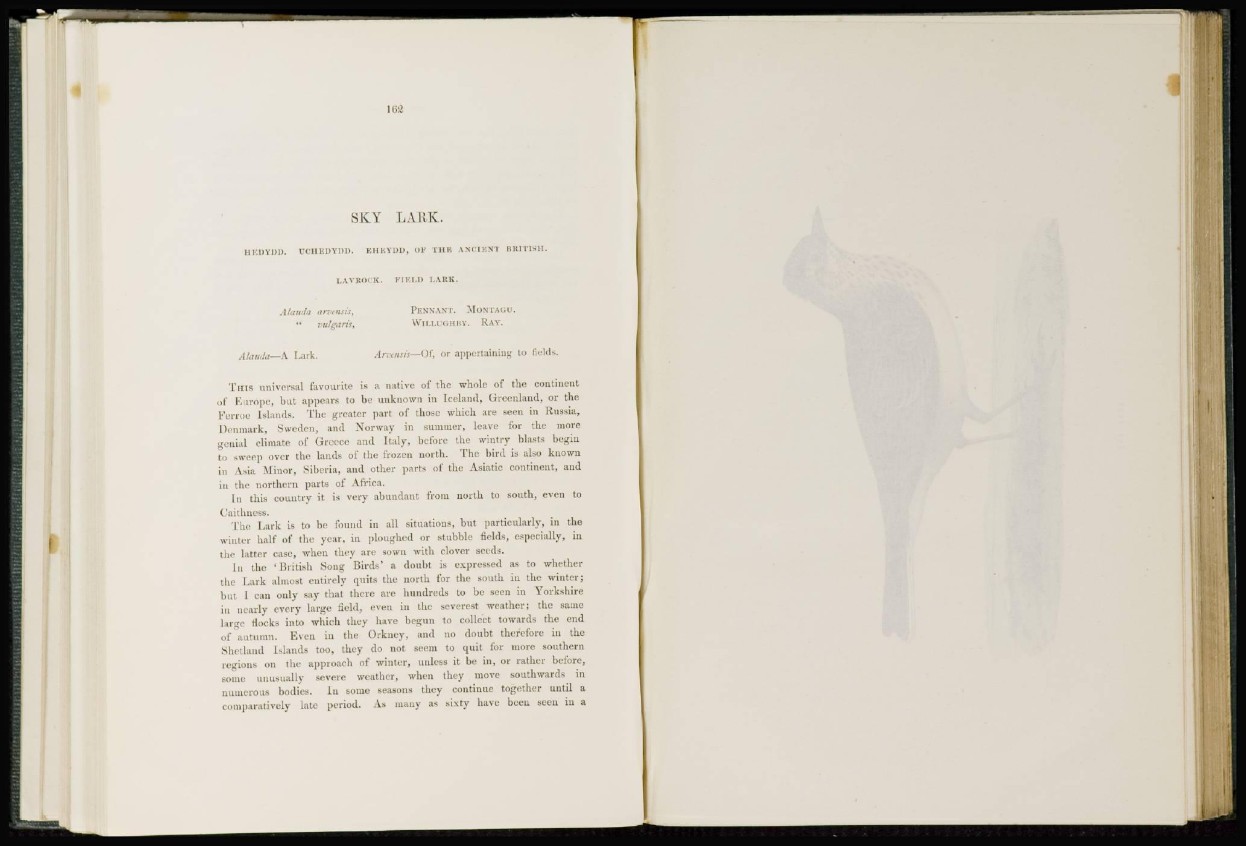
SKY LARK.
HKIJVD1). rCHEDYDI). BHBYDD, OF THE ANCIENT BRITISH.
LAVROCK. PIBLD LAHK.
Alawia iinvnst's, PENNANT. MONTAGU.
" vulgaris, WiLi.iKiHBY. RAY.
A/audit—A Lark. Arrtnsis—Of, or appertaining to fields.
THIS universal favourite is a native of tlic whole of the continent
of Europe, but appears to be unknown in Iceland, Greenland, or the
Ferroe Islands. The greater part of those which are seen in Russia,
Denmark, Sweden, and Norway in summer, leave for the more
genial climate of Greece and Italy, before the wintry blasts begin
to sweep over the lands of the frozen north. The bird is also known
in Asia Minor, Siberia, and other parts of the Asiatic continent, and
in the northern parts of Africa.
In this country it is very abundant from north to south, even to
Caithness.
The Lark is to be found in all situations, but particularly, in the
winter half of the year, in ploughed or stubble fields, especially, in
the latter case, when they are sown with clover seeds.
in the ' British Song Birds' a doubt is expressed as to whether
the Lark almost entirely quits the north for the south in the winter;
but 1 can only say that there are hundreds to be seen in Yorkshire
in nearly every large field, even in the severest weather; the same
large flocks into which they have begun to collect towards the end
of autumn. Even in the Orkney, and no doubt therefore in the
Shetland Islands too, they do not seem to quit for more southern
regions on the approach of winter, unless it be in, or rather before,
some unusually severe weather, when they move southwards in
numerous bodies. In some seasons they continue together until a
comparatively late period. As many as sixty have been seen in a